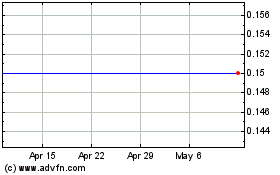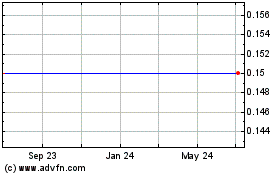Comcast Sees More Videos On-Demand In NBC Universal
November 24 2009 - 3:46PM
Dow Jones News
Part of Comcast Corp.'s (CMCSA) desire to take control of NBC
Universal comes from its appetite for film content from Universal
Studios to bolster its video on-demand offerings.
By gaining control of the film library of a major Hollywood
studio, the nation's largest cable services provider hopes to build
VOD into a real growth engine for the entertainment business that
could ultimately replace the DVD. Still, it's far from clear that
the acquisition of Universal Studios would immediately help Comcast
boost its VOD business.
Just as the music business has suffered from the decline of CD
sales and the publishing business has suffered from the decline of
newspaper and magazine sales, the movie business is being squeezed
in the digital age by a slowdown in its most profitable business:
DVD retailing.
Hollywood views VOD--movie rentals that cable subscribers can
select on their TV without leaving their couch--as one potential
savior. But studios have been slow to embrace the business for fear
of adding to the decline in DVD sales and running afoul of key
retailers, like Wal-Mart Stores Inc. (WMT), which makes up nearly a
third of all DVD retail sales in the U.S. and is known to be a
demanding partner.
As the cable industry's leader in VOD, Comcast sees an
opportunity developing now to push studios into its corner. That's
part of its motivation in negotiating with General Electric Corp.
(GE) about taking a majority stake in NBC Universal, according to
people familiar with the matter. A deal is expected in the coming
days or weeks.
"The margins that movie studios make on a rental from VOD are
much better than the margins they make through" Blockbuster Inc.
(BBI) or Netflix Inc. (NFLX), "so it has always been a riddle as to
why the studios haven't been quicker to embrace it," said Craig
Moffett, analyst with Sanford C. Bernstein & Co. "The prospects
for making progress on this issue now are much better than they
used to be."
By controlling Universal, Comcast could use access to its
blockbuster film slate to experiment with VOD delivery and inspire
other studios to follow suit. Options include moving up the VOD
release date on some films ahead of their DVD release, and charging
a higher price point to boost profits.
Representatives for major film studios, including Universal,
declined to comment for this story. However, several industry
participants are skeptical that Comcast would make much headway on
VOD as a result of the acquisition, pointing to other false
starts.
The combination of Time Warner Inc. (TWX), owner of Warner Bros.
Entertainment, and Time Warner Cable Inc. (TWC) had little impact
on the VOD business and was recently abandoned. Likewise, News
Corp. (NWS, NWSA), owner of this newswire as well as 20th Century
Fox films, owned a majority of satellite TV provider DirecTV (DTV),
but wound up divesting the stake.
In 2005, Comcast and a group of other firms paid $5 billion to
acquire Metro-Goldwyn-Mayer Inc., the film studio that owns the
James Bond film franchise. Comcast has since written off its 20%
stake in that venture.
"The question now becomes why, if building up the VOD business
is in everyone's mutual interest, does it take a $30 billion deal
from Comcast to make it happen?" asks Moffett.
Still, there are signs that studios are embracing the shift away
from DVDs. The film industry is increasingly willing to release
films on VOD at the same time they release them as a DVD in stores.
Historically, studios have held back films on VOD to avoid hurting
DVD sales, but that appears to be changing.
In 2007, Comcast offered nine films on VOD at the same time they
were released on DVD. In 2008, that number climbed to 35. It
totaled 68 through the first nine months of this year, and the
company expects it to go over 100 by year-end. Meanwhile, Comcast
is averaging over 350 million VOD views a month this year, up from
300 million last year and 250 million in 2007.
"As they see the DVD business change and decline, the studios
are looking to VOD and electronic sell-through and other
non-physical ways to distribute movies with a completely different
mindset," said Comcast Chief Executive Brian Roberts on a recent
conference call.
Meanwhile, studios are still wary of sharing revenue with pay-TV
providers at a time when online distribution has enabled anyone to
reach consumers directly, but the movie download business has so
far been dominated by Apple Inc.'s (AAPL) iTunes service.
-By Nat Worden, Dow Jones Newswires; 212-416-2472;
nat.worden@dowjones.com
Blockbuster (NYSE:BBI)
Historical Stock Chart
From Mar 2024 to Apr 2024

Blockbuster (NYSE:BBI)
Historical Stock Chart
From Apr 2023 to Apr 2024
